If you’ve been diagnosed with a thyroid problem, then you may, at some point, have thrown your hands up in the air in frustration.
After all, why does it even matter if you as a thyroid patient understand how your thyroid functions?
For one simple reason:
The thyroid patients who understand thyroid function are always the ones that feel their best.
It may sound daunting, but I promise that it’s not as confusing as you might think.
Let me explain what you need to know, in simple terms, starting with T3:
Understanding T3 (In Plain English)
T3 is probably the single most important thyroid hormone.
Why?
Because it is the most biologically active thyroid hormone and most of the functions we associate with your thyroid gland come from the interactions of T3 in your cells (1).
T3 is short for the term Triiodothyronine which is the name given to this form of thyroid hormone.
But how does your body create T3?
T3 is created FROM the most abundant thyroid hormone in your body T4.
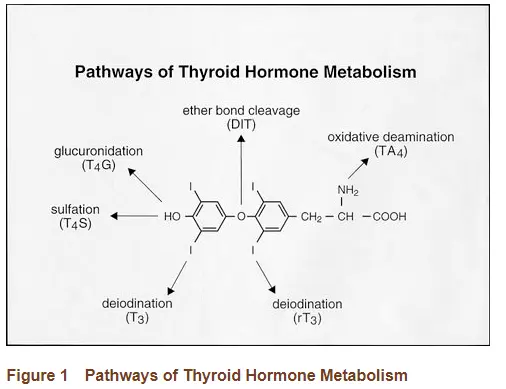
The process by which T4 is turned into T3 is known as thyroid conversion.
And this conversion process is critical to understanding how your thyroid works.
Thyroid conversion is the method that your body uses to tightly regulate thyroid function in the body.
It is used to help create the EXACT amount of thyroid hormone needed at any given time and for all tissues.
Think about it:
So, if you are currently under a lot of stress, or if you need to produce more energy or heat, then your body can rev up the thyroid conversion process to produce more T3.
On the opposite side of the spectrum, your body can also choose to slow down the conversion and put energy into more important bodily functions in instances where you may be critically ill.
We see reduced conversion in people who are critically ill (4), those in the hospital, people taking certain medications, and so on (5).
More recently, we also see some patients with obesity and metabolic syndrome with lower-than-normal T3 levels due to a slowing of peripheral thyroid conversion (6).

In this way, thyroid conversion is becoming a more important topic because it influences how Doctors should treat and evaluate certain patients.
This regulation is one of the most important concepts to understand in thyroid physiology.
Thyroid conversion occurs ALL the time and occurs in major tissues such as your liver, and your gastrointestinal tract (7) but it also occurs in each cell.
So what does T3 actually do?
T3 the thyroid hormone floats around in your bloodstream until it hits the target cell.
Once there it can activate cellular function in two important ways:
The first is through non-genomic changes in the cell.
An example would be the way that T3 activates calcium channels in the heart which may cause palpitations when ingested.
The second is through genomic changes in the nucleus of the cell.
These changes directly impact the expression of DNA and, therefore, which proteins are created.
Put into plain English:
T3 helps increase your metabolism, improves your gastrointestinal tract, helps regulate your weight, regulates your mood, and so on.
Perhaps the most important changes that occur secondary to thyroid hormone occur as the result of T3 changes in the cell.
Understanding T4 (In Plain English)
The majority of thyroid hormone produced by your thyroid gland is actually in the T4 form (also known as Thyroxine).
Your thyroid gland, if working properly, produces around 80% T4 and about 20% T3 (10).
This means that T4 is MUCH more abundant in your body when compared to T3.
It’s also important to understand that T4 is NOT as biologically active as T3.
This means that it doesn’t have the same cellular effects as T3 and it doesn’t activate your cells in the same way.
So what is the purpose of T4?
T4 helps to serve as a reservoir for T3 conversion, so T4 levels are still critical to proper thyroid function.
T4 also does have some cellular activity, but these are not felt to be as strong when compared to T3.
T4 is important to understand because most of the medications that Doctors prescribe to treat hypothyroidism come in this form.
The idea is that supplying the body with T4 (the less biologically active thyroid hormone) is safer when compared to using T3.
T4 also has a longer half-life when compared to T3 (11) and comes with fewer side effects.
What About T2 Thyroid Hormone?
T3 and T4 tend to get most of the attention when it comes to thyroid hormones, but there’s another one that you need to be aware of:
T2.
T2, also known as 3,5-Diiodo-L-thyronine (or T2 for short) is not as powerful or potent as T3 and T4, but it still does provide important physiologic effects.
The most important may be its propensity to impact basal metabolic rate or metabolism.
Some studies have shown that even though T2 is far less biologically active when compared to T3 (12) (it’s about 1/80th as potent), its impact on metabolism may be equal to or greater than that of T3.
Some studies attempt to compare T2 to T3 on the basis of its biological activity, but I don’t think that’s how it works.
T2 appears to act as a ligand on the thyroid hormone receptor which enhances the activity of T3 on your cells.
Through this mechanism, it not only provides its own benefits but appears to enhance the function of other thyroid hormones.

One of the most interesting aspects of T2 is not its mechanism of action, but the fact that it is available for purchase as an over-the-counter supplement.
Unlike T4 and T3, you don’t need a prescription from your doctor to take T2.
This provides you as a thyroid patient a unique and powerful way to adjust thyroid hormones in your body without the need of a doctor.
And because studies show that T2 can help increase energy metabolism (14), it’s a tool you may benefit from using.
T2 is a great option for thyroid patients who are taking standard thyroid medications but are not feeling their best.
T2 as 3,5 diiodo-l-thyronine is available in both capsule form and cream form.
You can learn more about the cream form here.
And you can learn more about the capsule form here.
What is Reverse T3?
On top of the active thyroid hormones, you also need to know a little something about the dreaded anti-thyroid metabolites.
Reverse T3, known as RT3 or 3,3′,5 triiodothyronine, is one of these.
It’s created from the conversion of other active thyroid hormones like T4.
But wait, didn’t we already mention that T3 is created from T4? How can reverse T3 be created from T4 as well?
Both statements are actually true.
You can think about thyroid conversion as a fork in the road.
Your body has the ability to turn T4 into reverse T3 or T3 and it must choose one or the other.
If it chooses reverse T3 over T3 then there’s one less molecule of thyroid hormone that can be activated.
Beyond “stealing” from your potential T3 supply, reverse T3 can also block thyroid action at the cellular level (15).
So not only does the conversion of T4 into reverse T3 lower circulating T3, it also makes it more difficult for what little T3 remains to do its job.
In this way, you can think of reverse T3 as the major anti-thyroid metabolite and the enemy to any thyroid patient looking to feel their best.
Why does this conversion to reverse T3 occur?
In response to certain and specific conditions, some of which are under your control.
Some states which encourage the product of reverse T3 include:
- Inflammatory states (16)
- Obesity
- Metabolic abnormalities
- Exposure to LPS
- Exposure to EDCs
- Illness
- Medications
Reverse T3, like the other thyroid hormones we’ve mentioned (but with the exception of T2), can be measured in the serum through simple lab tests.
There’s some debate about whether or not ordering reverse T3 is beneficial, but my opinion is that it’s worth keeping an eye on from time to time.
TSH VS Thyroid Hormones
It may be confusing to hear about thyroid hormones such as T4 and T3 when you are so used to hearing about TSH.
TSH, while important, is not necessarily more important than your thyroid hormones.
TSH, known as thyroid stimulating hormone, is a hormone secreted by your pituitary gland.
TSH then acts to stimulate the RELEASE of thyroid hormones from the gland.
TSH doesn’t necessarily say how much T4 and how much T3 to produce, however.
It just “stimulates” the gland to produce thyroid hormone in general.
The actual activation and conversion of T4 into T3 (which is more important as it relates to thyroid activity) is controlled by the liver, gut, and individual cells.
TSH is important, however, in helping to diagnose gross abnormalities in your thyroid gland and in helping to determine how “responsive” the gland is to TSH.
If you have high TSH in your bloodstream, then that is often a sign that you have LOW thyroid levels in the body or a condition known as hypothyroidism.
High TSH is an indication that your thyroid gland is not responding to the TSH.
Low TSH, on the other hand, may be an indication that you have TOO much thyroid hormone in the body (known as hyperthyroidism).
TSH is an important factor in thyroid management, but it should not overshadow the evaluation of free thyroid hormones such as T3 and T4.
In addition, there are situations in which the TSH becomes less helpful as a tool for evaluating thyroid function.
You can read more about this concept here.
Testing for T3 & T4 & Getting Optimal
Because of the importance of thyroid hormones in thyroid physiology, it’s important to evaluate and monitor their levels in your body.
You can do this through simple blood tests for both hormones.
These hormones should be evaluated in addition to the standard TSH (Thyroid stimulating hormone) which is often ordered to evaluate thyroid function.
TSH gives you an idea of how the pituitary is functioning and how responsive your thyroid gland is, but T3 and T4 give you much more actionable information on how thyroid hormone is being utilized in your peripheral tissues.
Always use these blood tests in conjunction with TSH.
You can find the list of thyroid hormone testing below:
- Free T3 – Free T3 is the number of FREE and ACTIVE thyroid hormone. Remember that T3 is the most potent and biologically active thyroid hormone. For optimal results, this value should be in the top 50% of the reference range (top 20% for weight loss).
- Free T4 – Free T4 is the number of FREE and ACTIVE thyroid hormone but is NOT as biologically active as Free T3. For optimal results, this value should be in the top 50% of the reference range.
- Reverse T3 – Reverse T3 is the anti-thyroid metabolite that competes for binding with T3. For optimal results you want this value to be less than 15 ng/dL.
When using thyroid medication (such as Levothyroxine or Synthroid) you want to optimize your Free T4 level to be in the top 20% of the reference range and your free T3 to be in at least the top 50% of the reference range.
If weight loss is your goal, then aim for even higher free T3 levels (top 20% of the reference range).
In order to achieve these levels, you may need to use a combination of T4 + T3 thyroid medications along with T3 support supplements.
This may require adding Cytomel or liothyronine to your existing dose of T4 or by switching to NDT medications such as Armour Thyroid.
Final Thoughts
Understanding how T3 and T4 work in your body will help you to understand how well your body is functioning.
Remember that your thyroid gland controls very important functions in your body ranging from your metabolism to your mood and everything in between.
These functions are TIGHTLY controlled and regulated by your thyroid gland, thyroid hormones, and thyroid conversion.
Small changes, or dysfunction, to any of these systems, may result in quality of life issues that will manifest as weight gain, depression, fatigue, hair loss, and so on.
If you suffer from hypothyroidism or another known thyroid disease, please make sure that you evaluate your thyroid hormones in addition to TSH.
Ordering T3 and T4 will help shed insight into how well your body is utilizing thyroid hormones and how well you are converting thyroid hormones.
If you find that you are not optimal, even if your TSH is normal, then you may need to have your medication adjusted to include different medications or a different combination of T4 and T3.
Now I want to hear from you:
Have you had your T3 and T4 tested?
Are you suffering from high reverse T3 or other thyroid issues?
Are you taking thyroid medication?
Leave your comments below!
Scientific References
#1. https://www.ncbi.nlm.nih.gov/pmc/articles/PMC4699302/
#2. https://www.ncbi.nlm.nih.gov/books/NBK285545/
#3. https://www.ncbi.nlm.nih.gov/pubmed/6479377
#4. https://www.ncbi.nlm.nih.gov/pubmed/27065175
#5. https://www.ncbi.nlm.nih.gov/pmc/articles/PMC1070767/
#6. https://www.ncbi.nlm.nih.gov/pmc/articles/PMC4911848/
#7. https://www.ncbi.nlm.nih.gov/pubmed/3049061
#8. https://www.ncbi.nlm.nih.gov/pubmed/26668118
#9. https://www.ncbi.nlm.nih.gov/pmc/articles/PMC3433956/
#10. https://www.ncbi.nlm.nih.gov/pubmed/12915350
#11. https://www.ncbi.nlm.nih.gov/pmc/articles/PMC5167556/
#12. https://www.ncbi.nlm.nih.gov/pubmed/9343306
#13. https://www.ncbi.nlm.nih.gov/pmc/articles/PMC4272398/
#14. https://www.ncbi.nlm.nih.gov/pubmed/28192176
#15. https://www.ncbi.nlm.nih.gov/books/NBK285568/
#16. https://www.ncbi.nlm.nih.gov/pubmed/2588721
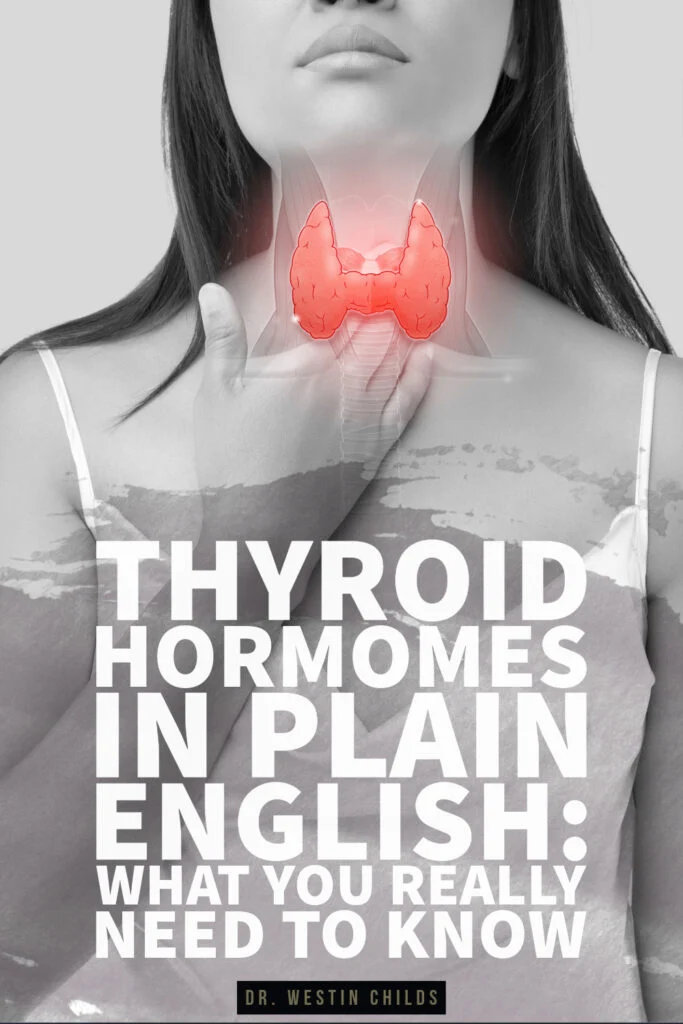
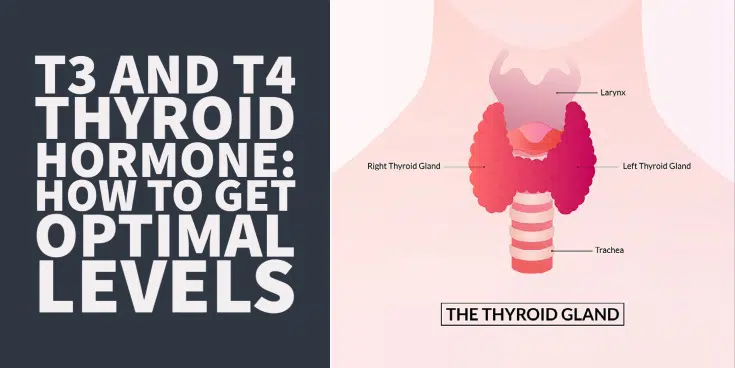
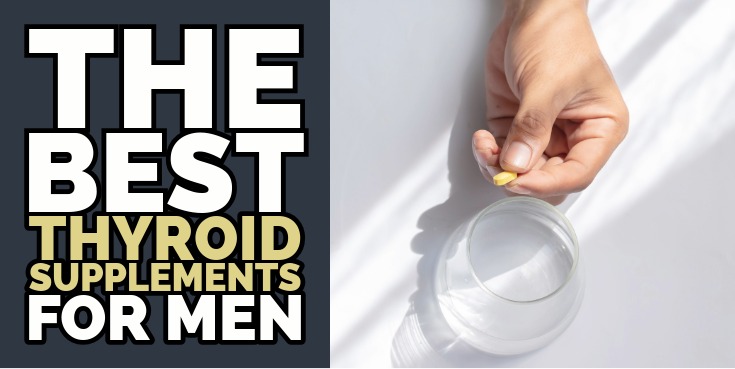
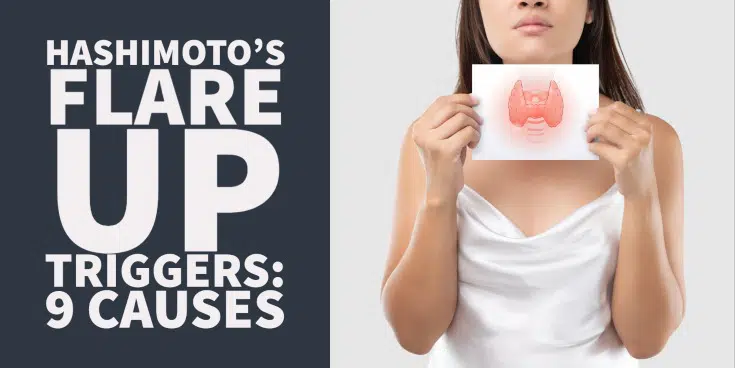
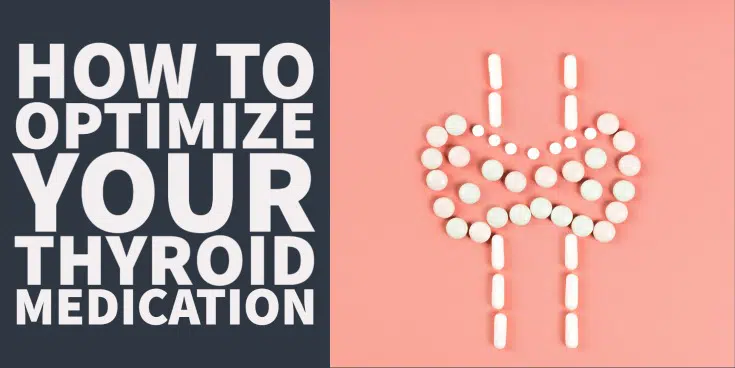
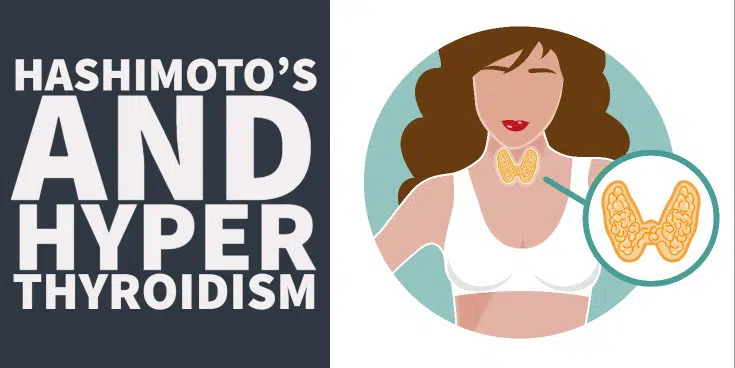
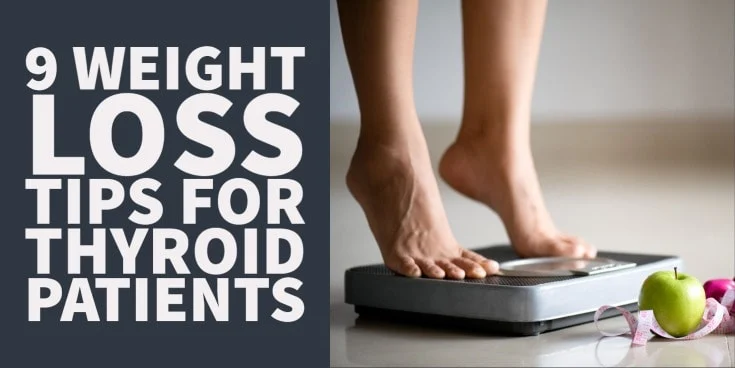
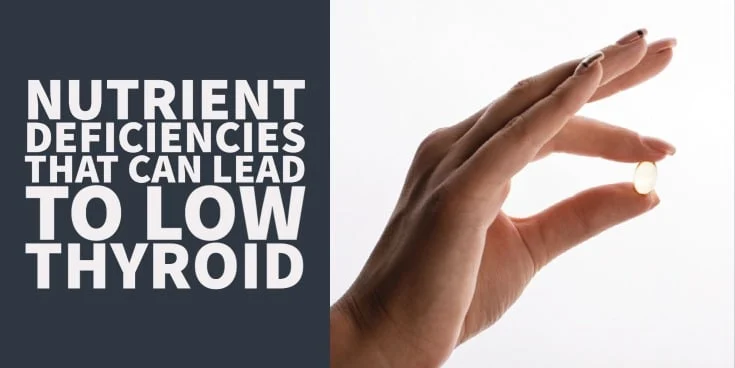

Hi Dr. Westin,
I am a Chinese Medicine practitioner treating a patient base whose issues run the whole gamete. I just recently came across your page and I am finding it an incredible resource to be able to support my patients as many of them concurrently navigate more allopathic care. Thanks for your work- especially your thoughtful but easy to read writing style.
Hi Meghan,
No problem and I hope you find it helpful!
I am a 48 y.o. Woman who has been on hormone replacement for 30 years. I have mostly been prescribed Levothyroxine for all of those 30 years, I lost my thyroid to papillary thyroid cancer at age 18, I have been very successful in maintaining my health and having two children but the weight loss has always been very hard, as well as the mood leveling.
My question is, What should I ask my doctor to look for? Should I be seeing an Endocrinologist or an Internal Medicine Doctor and what test and results should I need to be aware of?
This has bothered me for years but I just “go with the program”.
I don’t expect to hear from you but thought it was worth a shot.
Thank you!
Hi Amy,
In general, you will probably find more luck with an Integrative Doctor. I would recommend that you check out both of these posts for more information:
How to find a thyroid doctor: https://www.restartmed.com/thyroid-doctor/
Lab tests that you should ask for: https://www.restartmed.com/thyroid-tests/
Hi Dr. Westin
Every morning I take 100 mcg levothyroxine as two 50 mcg tablets to avoid the additives in other dosages. Also at the same time, I take 12.5 mcg liothyronine. Although my TSH is very very low like .02, my free T3 and T4 are in the optimal range and I was finally able to lose 10 lbs. Only 7 to go! 🙂
Hi Rachel,
Awesome! Thanks for sharing 🙂 It can be tough to find optimal dosing for each person, but once you do the results are very much worth the struggle.
Keep us updated on your progress.
I’m a 67 yr. Old women who has suffered badly with genetic diseases, and Hashimoto’s thyroid disease. The Hashimoto’s disease has destroyed and disintegrated my thyroid gland, I had an ultrasound done on my neck, there’s only a piece of thyroid tissue left inside my throat with the 4 thyroid cyst’s floating around my throat. I was diagnosed in my late 20’s with a dead thyroid, I was on Synthroid up until my 60’s, then a naturopathic doctor tried me on natural thyroid meds. They kept playing with the dosage’s going up and down for 5 yrs. My T-3, T-4, my TPOA antibodies were and still is very high, my TSH goes very high, or low. Today I’m on 100 mg. Of only Synthroid, my dr. From the thyroid clinic only goes by TSH test results. She said that they don’t evaluate or give you meds for the other test results. What do you advise??
Hi Beverly,
Your best bet is to seek out a second opinion with a physician who better understands thyroid physiology and who can help manage your thyroid.
You can find resources on how to do that here: https://www.restartmed.com/thyroid-doctor/
Hi Dr. Westin,
I’ve been on Armour for almost a year and for a while I felt good and had energy but did not lose weight and I actually gained 10 pounds since starting although my TSH was almost at 0. And my t4 and t3 were on the higher side of the range. It seems that when I exercise and diet my energy plummets and when I start to eat normally I gain very rapid weight at one point I’ve gained 4 pounds in two weeks and I wasn’t eating that much. I’ve read that some people actually gain weight from Armour. Any information would help. Thank you.
Hi Oksana,
Yes, it’s certainly possible to gain weight on both T4 and T3 medications. This is not considered a common side effect but it certainly can happen.
Usually, the key to understanding how this happens is by evaluating your reverse T3 level. You can learn more about that here: https://www.restartmed.com/reverse-t3/
What is an optimal TSH number?
Hi Mindy,
You can find more info about optimal lab levels here: https://www.restartmed.com/thyroid-tests/
Hi Dr. Westin
I have been on T4 replacement for about 10 years now with no luck losing any weight. My skin is very dry and itchy my moods are all over the place my whole body just aches my hair is thinning. I went to a new doctor who looked more thoroughly into my blood and also prescribed T3 replacement. Was on both T3& T4 for about 6mths and ended up in the hospital for 4 days with afib. The doctor in emergency went crazy that I was taking both T4& T3 replacement and took me off T3 and put me on blood thinners. On my check up appt, they increased my T4 replacement to 200mg per day as my blood results were all over the place. I feel I’m Back to square one again. The best I have felt in years was when I was on the T3. What do I do.???
Hi Lisa,
The single best thing you can do is find a physician who is willing to work with you and get you on the best medication for you, you can find more info on how to do that here: https://www.restartmed.com/thyroid-doctor/
I have run the gammut of trying different meds and I am big time allergic to most fillers it seems. I have been taking Tirosint and am not adding Cytomel. Can you tell me the proper ratios to take the two (and from there I can figure out my optimal titration) and also do know where I can get a “pure” T3 with no dillution (usually microcrystalline cellulose that I do terrible with) and a good filler? My doc here is gret in leeting me try what I need to, but not quite as informed on the thyroid meds/stuff. Thanks in advance!
My FT4 is always on the low end. The highest I’ve seen it was a .89ng/dl in 2016. I finally got my RT3 checked in 10/2016 and it was at 15 ng/dl. At the same time, my FT3 was 3.68pg/ml, FT4 was .80 ng/dl, and TSH was 3.64 ulU/ml. in 2016 I had an ultrasound of my thyroid and had one nodule and in 2017 I had another ultrasound and it showed another nodule and a cyst. And in the last year, I started having what feels like swollen lymph nodes, pain/pressure in thyroid area of the neck. ENT thinks I have silent reflux and has me on meds for that. I’m wondering if I should be trying to pursue looking at a possible thyroid issue? I do have a long list of symptoms that if put together should indicate a thyroid issue/autoimmune issue but conventional Dr’s can’t seem to figure out what it is.
Hi, Dr. Westin,
My T4 is normal low range 90, and rah normal. I took my naturethroid pill the morning of the test (forgot) and t3 was high.
I was recently increased from 90 to 130 Naturethroid and there was no increase in Free T4.
Still, have Hashimoto symptoms.
Any suggestions are greatly appreciated!
Hello.
I have recently had labs drawn and the reference range is higher than any other lab I’ve had drawn. Has there been a change in reference ranges in the last 3 months? Also, my endo has never tested reverse t3. How important is this test and should I be requesting full panels each time?
Thank you, Dr. Childs.
Hello, I have been post-surgery on the right side, nodule for a year and a half. I’m on armour thyroid. I’m 60 yrs old and have a problem losing weight all my life. Had gastro bypass 15 yrs ago, kept off most of the weight for 14 yrs, then menopause gained 20 lbs in 6 months found out my nodule was growing and had it removed. Recently got my TSH done with t4 free and t3 free. My results are tsh 0.848 t4 0.67 and t3 2.43 they said it was perfect. Started a diet with no carbs keto down 6 lbs in 1.5 weeks. Are these normal readings and what is the ranges suppose to be, everytime I look up I get all different numbers.
Thank You
Sherri
Hi Sherri,
You can find a list of optimal vs normal thyroid lab tests in this post: https://www.restartmed.com/normal-thyroid-levels/
I would recommend you check that out and compare your results!
Hi Dr. Childs, when is the best time to test for thyroid hormones? I have read conflicting information. I am currently on a T4 (tirosint) and T3 (Cytomel) dosage. I have read to not take it the morning of tests which could mean 24 hours after you take your last medication. I have heard 4 hours after, then I have heard 12 – 18 hours after last medication.
Hi, Dr. Child’s I was recently put on Cytomel along with Synthroid since it was discovered I have low free t3 as well. I have hypothyroidism caused by subacute thyroiditis. I noticed that if I do my blood work after taking medication my free t4 is in the upper range and my free t3 as well but my TSH is very suppressed (.03). I’m on 15 mcg Cytomel and 88 mcg Synthroid a day. If I do my blood work before my medication my free t3 is below range and my free t4 is low but in range and my TSH is the same. Which results are more accurate? Is it safe to add more Cytomel without increasing Synthroid? Your feedback is much appreciated. Thanks
Hi Dr. Westin,
I am a 49 year old woman that is in good shape, active and works out 3-5 days a week. Up until now my thyroid has always been good and now I got a reading of my T3 at 7.4 . Over a month ago I started taking zinc every day and had my blood tested and it came back high. Then I re-took the blood test checking my thyroid after I got off the zinc for three weeks and it is still reading 7.4.
I am on bio-identical hormones and have been for 3-4 years now. I take estradiol/testosterone under the tongue and progesterone lab created.
I am going through some stress in the last month as well.
I would like an expert opinion as to what I should be doing or consider or what I can do to correct my T3.
Very concerned,
Sandy Bobeldyke
Hi Dr. Westin.
I asked my doctor to do a rT3 test, but she refused and said it’s done differently than the other thyroid tests. Is that correct or is it done the same way?
Thanks in advance,
Kolbrun
Hi Kolbrun,
I’m not sure I understand the question. Reverse T3 is just a standard lab test like any other thyroid lab test but the assay is different (but this is true of all lab tests).
Yes — for quite a few years I have been having my Free T4 and Free T3 tested. They still test my TSH even though I have pituitary damage from a severe hemorrhage during childbirth. My TSH usually comes back at <0.01.
I haven't really been able to get some good help with my situation. I have taken some Timed release T3 meds and thought that they were working pretty good for me, but at one lab test the Free T4 and the Free T3 went over the range — Not sure what happened there!
My functional medical doctor refused to renew my prescription for my Timed release T3 med so I have been off that med for several months.
Now my Free T4 levels have gone up (I'm taking synthroid — 175mcg) to the top of the range (I started taking them early in the morning before getting up and when I take my Cortef) so maybe they are absorbing better. And now with no Timed release T3 medication those levels are at the very bottom of the range — about 5% or less from the bottom of the range and every subsequent lab report has the Free T3 LOWER still!
My family doctor and my functional medical doctor have refused to order me ANY T3 medication because I am in my 70's and they are "paranoid" that I'll have afib! Their story goes that no one over 60 gets any T3 med — to prevent that happening!
AND they try to "scare" me by saying that IF that happened I would have to take "blood thinners" for the rest of my life! AND I have ALWAYS had rather THIN blood — nose bleeds that didn't stop, veins in my foot that burst open and were VERY hard to stop the bleeding, etc!!
The endos here are pretty useless — almost all wanted me to lower my Thyroid meds in order to "make" the TSH go up!!
I want to ask my functional medical doctor for Armour Thyroid, but don't know if he'll agree! I have been having quite a lot of shoulder pain and I usually don't feel pain easily! My substance P levels are WAY down!!
ANY suggestions are welcome!
Hi dr I have try to call your office and nobody answer the phone I REALLY LIKE TO MAKE AN APPOINTMENT I live in Phoenix Az and is hard to reach out to you I have thyroid problems and I been taking the same medication for years I think I need to change but I think I need another doctors opinion thank you
Hi Maythe,
Unfortunately, I’m not seeing patients right now but if that ever changes I will send out an email to my list! You can sign up on this page if you’d like: https://www.restartmed.com/start-here/
Hi Dr Child’s is brand name Cytomel more potent than generic T3?
Hi Carolyn,
They are mostly the same, some people may do better on one compared to the other, though.
Hi please accept my apologies in advance if I have already posted this, but I cannot seem to find my question so I am reposting. My name is Cindy I’m a 58 year old female, who has been suffering for over 6 years from severe overheating issues. No blankets no heat no hot showers. I can’t walk even a hundred feet without getting so overheated, I have to run into my place and sit underneath a fan. I have had my TSH, T3 and T4 levels checked, and I was told they are normal. Over the last few weeks I started losing my hair, and have lost almost 50% of my hair in patches. The inability to regulate my body temperature or cool down, is so severe and debilitating it is interfering with my daily life. What tests can I ask my doctor to do next? She threw her hands up and said I was the worst case you have seen. I can’t leave it at that I need to know what other tests can be done. Can you tell me what other tests can I ask my doctor to perform? Desperate in seeking an answer.
Hi Cindy,
Have you checked to see if this is menopause related? It could be your thyroid but it could also be related to your sex hormones as well.
I asked my doctor to add T3 to my T4 medication. Starting out at 5 dose twice a day. I feel really good in the morning but seem to crash in the afternoon even if I take an afternoon dose I still feel super tired. So in the morning I feel great but afternoon I feel crappy even though I am taking a second dose. Why does it feel so different in the afternoons. Why is it not as stimulating?
Dr. Westin Childs. Mar 8/24
I am Hypo condition but each time i have requested my Physician for Thyroid Tests the focus is on TSH & my requests for T3 & T4 it is considered as NOT important tests. I have indicated TSH is a knock on the Th GL door but what are the members doing inside the thyroid is important. But I’m still denied. My skin is cracking in the sole of my feet & feel tired & lethargic. Mind fog is my other symptom. Instead of correct Tests, I’m told TSH looks NORMAL & therefore Prescription of Thyroid has been stopped. I take Dessicated Thyroid 2 1/2 tabs of 30mg ea tab. Could you please take me on as your patient for Care Plan?
Please send me your reply @ 1 204 698 3210 as a text message with your fees etc. Thank you for your time. I also have leakage of brain fluids from a hole ~ 1” from the left of the spinous process of the vertebral column in the neck region bet. the Cranium & the Vertebral Column. Kindly help me wth connections with few Neuro Surgeons & their Contact Numbers. Thank you immensely for your time. Lalita kalturnyk – Email us: Click to view address
my tsh levels is 3.6, t3 total is 367, t4free is 1.4.. something is missing here. how can i get this massive t3total from normal tsh, and t4 free levels.
shouldnt i have a t4 total as well. im having all kinds of issues, a squamous cell cancer of the tonsils survivor.. 45 rounds of 70uits of radiation to my mouth, chemo, the keytruda. i feel great for a few days, then jsut like a lite switch, i hit a wall .. i hike every day with my dogs so the changes are immediately noticeable. my ANA antibodies are positive..i have double vision which after 5 eye exams they diagnosed as convergence insufficiency, but after looking at my eyes i believe it is actually thyroid eye disease. im constantly battling dehydration, nobody seems to hear me after 5 years when i tell them i tired all the time, i an up and running human being,, lucky the radiation destroyed my dental so i had to undergo 20 rounds of isobaric 02 treatments which more or less gave me a new lease on life.. 8 moths of t replacement therapy and on t level was below 100, my oncologist took that over and let me self inject, i got my t level up in the 500’s, he retired and didnt take a t injection for several months.. my endo was going to prescribe me t injections but when we test my t level it was 945 on its own.. just wow. im almost 100 % sure im suffering from thyroid eye disease based on my physical features im diabetic, when i feel good i feel good, it never lasts more than a week to ten days, then i have no energy what so ever. at at my wits end trying to find a solution.. i thought t3 was converted into t4, but today i find it is the exact opposite.. any help would be much appreciated.